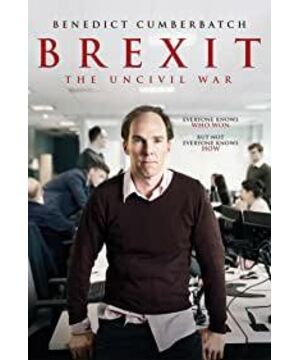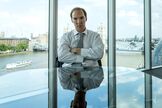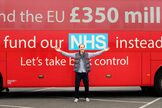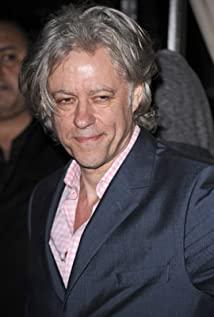There is a passage at the beginning of the film: We all know who won, but we don't know how he won. Indeed, there were two political black swans in 2016, one is Brexit and the other is Trump's rise to power. As the result came out, the mainstream media was in an uproar: How could this be possible!
Yes, it is possible. Not only is it possible, but this is a bloody fact, and it must be accepted and accepted.
And one of the important reasons that made this series impossible is: the gameplay has changed! The addition of "big data + cloud computing" technology has brought about a qualitative change in the way and accuracy of information dissemination.
The mainstream media previously controlled by mainstream elites can no longer "control" public opinion. Western democratic systems are facing unprecedented challenges brought about by breakthroughs in information technology.
Dominic, the protagonist in the BREXIT film, is a political hacker who used new tools to implement a dimensionality reduction attack on the old system.
However, what happens after the crackdown is successful?
Dominic actually didn't know what to do next, it was much easier to smash an old world than to create a new one. Cleaning up the mess has to rely on model worker Aunt May to go to EU countries to discuss...
Politically, it's the same in business.
In the past few years, the vocabulary we hear most is probably "innovation, subversion" ect... Whether it’s Didi, ofo, or Kuaishou, Douyin, Pinduoduo. They are playing new games, bringing old players home The bottles and jars were smashed to pieces.
But the problem is that most of the business hackers have not had time to make a profit, and the economic environment will soon be unable to sustain it. There are fewer and fewer blood transfusions in the primary market, and the leeks in the secondary market are also dying.
Who will rebuild a logical world?
Every few decades, when politics and economics are in a stagnant pool, someone will jump out and "smash", or, in the words of "BREXIT", ask to "restart the system."
The last time it was "smashed" was probably the social revolution that swept the world in the 1960s, and what followed was the decadent 1970s: Westerners were playing hippies, Orientals were starving...
Until, Reagan, Thatcher, and Deng Xiaoping came forward. Sorting out the murmur, reiterating that the economy is the biggest politics, so that everyone can return to traditional values, pragmatic and rational. To a certain extent, today's world continues the global logic that politicians and business leaders who followed them created since the 1980s.
However, just like newspapers, broadcasting has opened up people’s national identity and national cohesion, which will affect the world pattern for dozens of hundreds of years in the future. Facebook, Twitter, Weibo, WeChat, this kind of cloud computing based on the Internet and big data or even artificial Smart social platforms will inevitably have a huge impact on the world in the future.
And our anxiety comes from the fact that we don’t know if this is a good or bad effect. It’s not even clear whether it belongs to an influence that can still be controlled by humans.
Everyone has input to the system, and the overall guiding algorithm of these inputs intervenes in people's activities, and the result of the intervention produces new inputs. At the same time, such a process is rolling forward with an accelerating trend.
Possibly, the future belongs to the Tower of Babel...
Hopefully, human collective physics will return in the near future.
View more about Brexit reviews











